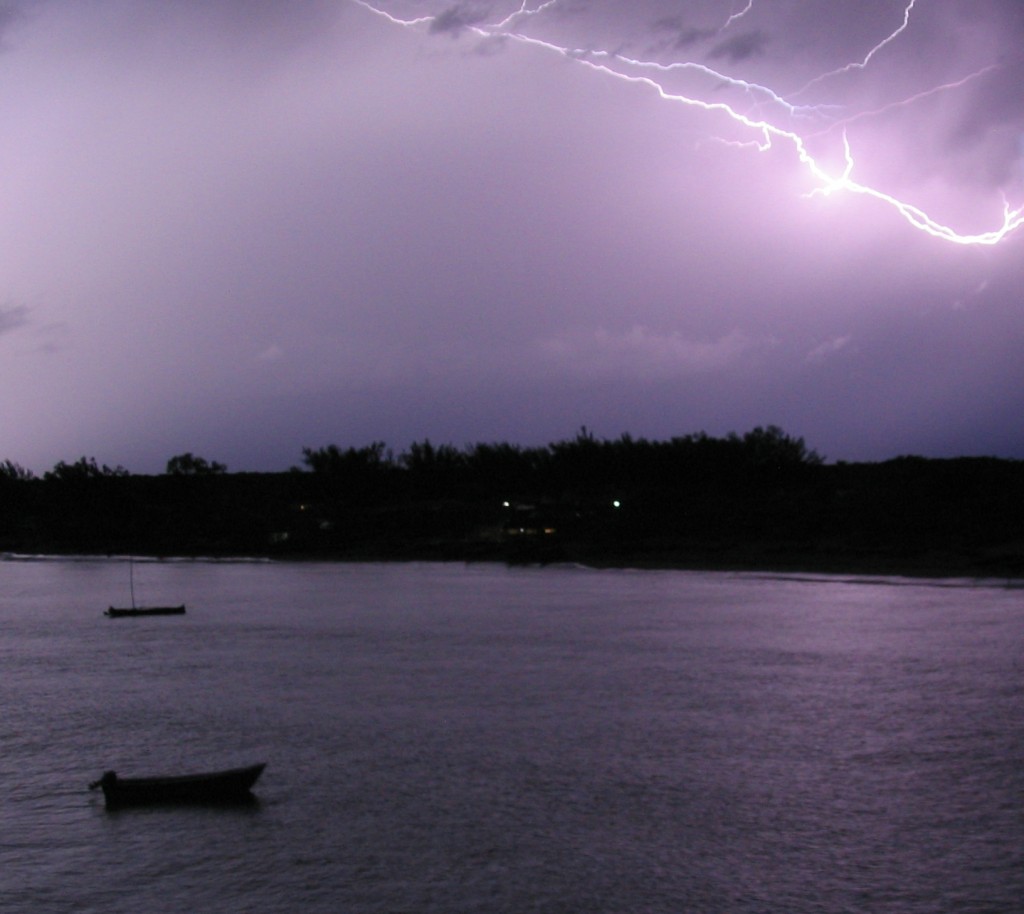by Kame Westerman, Velondriake MPA Project Coordinator, Madagascar
Although located hundreds of miles away in the Mozambique Channel, villages within the Velondriake Locally Managed Marine Area (LMMA) felt the effects of cyclone Funso’s outer edges last week. A recent report estimated that 3,000 people within Velondriake and neighbouring areas were displaced from their houses. The cyclone’s most aggressive day happened to coincide with one of the highest tides of the year, and crashing waves pulled at the first line of houses. The flimsy homes – constructed of reed and mangrove – collapsed with ease and scattered out to sea. The bad weather also made fishing (the main source of food and income here) nearly impossible and highly dangerous. Locals reported that it was the worst storm since 2005.
Disastrous climatic events in this region actually occur relatively frequently. A recent survey from the National Institute of Statistics (INSTAT) found that nearly 30% of households in the southwest region have experienced a natural disaster over the 12 preceding months including cyclones (13.3%), flooding (5%), drought (11%) and insect invasion (3.8%); these disasters have resulted in houses and infrastructure damaged or destroyed in 23% of cases, food insecurity in 75%, and destruction of lifestyle in nearly 10%.
The destruction of this storm, along with these other recent disasters, highlights the extreme vulnerability of coastal populations to extreme weather events. As climate change impacts continue to materialize, villages like those in Velondriake will certainly witness an increase in the frequency and intensity of these events.
Blue Ventures’ integrated activities aim to reduce this vulnerability within the villages of Velondriake. Conservation measures such as limiting destructive fishing and permanent marine reserves ensure a healthy reef, better able to protect villages against big swells and provide enough fish to feed households. Supplemental income generation through sustainable aquaculture allows families to increase their incomes, allowing them to invest in better housing or save for future food shortages. Looking in the longer term, providing access to family planning and community health further reduces vulnerability in that it allows couples to choose how many children to have and gives them the knowledge to keep their families healthy; healthy mothers can contribute to increased household income and savings. Finally, providing education to children allows them to eventually enter careers that are more stable and higher paying – not necessarily dependent on natural resource exploitation.
Cyclones like Funso, and other natural disasters, are predicted to only increase in the coming decades. Luckily, there are interventions, such as these implemented by Blue Ventures, that can build adaptive capacity of vulnerable communities.


